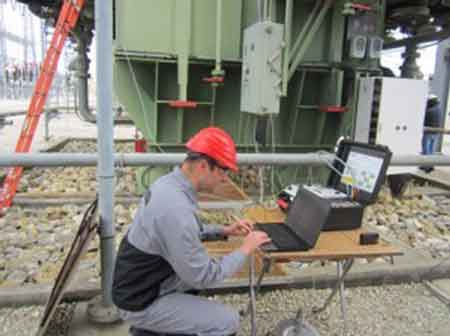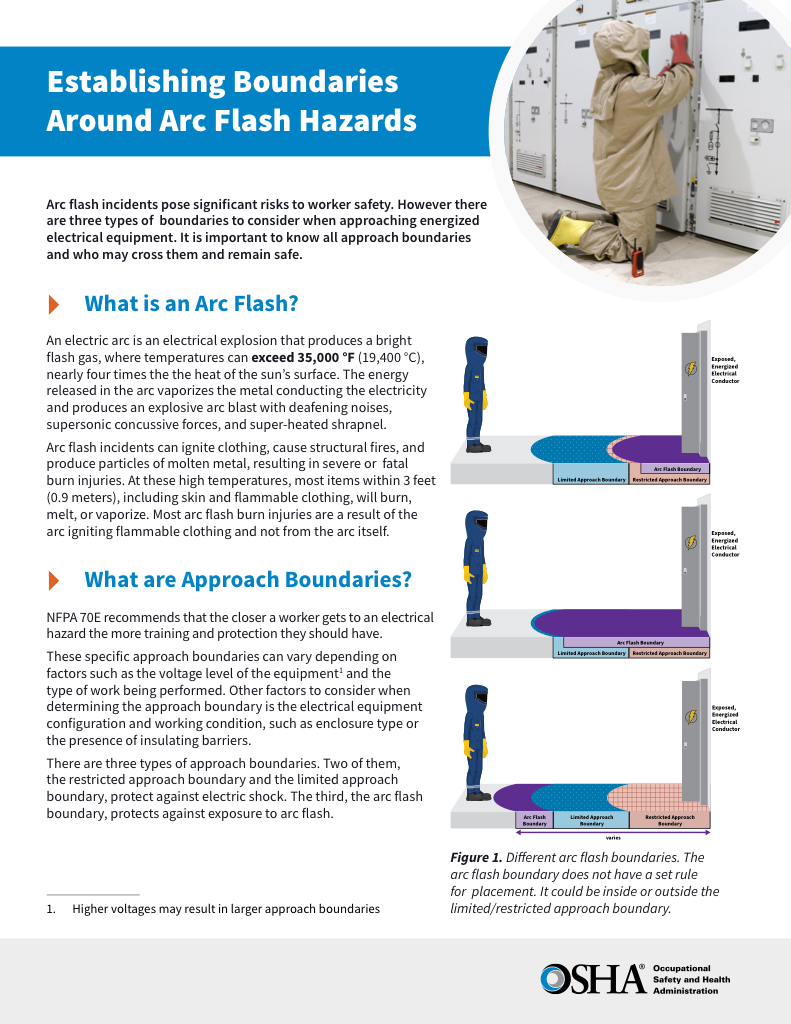What Is Working On Substations As Lineman Classified As?

Substation Relay Protection Training
Our customized live online or in‑person group training can be delivered to your staff at your location.

- Live Online
- 12 hours Instructor-led
- Group Training Available
Download Our OSHA 4474 Fact Sheet – Establishing Boundaries Around Arc Flash Hazards

- Understand the difference between arc flash and electric shock boundaries
- Learn who may cross each boundary and under what conditions
- Apply voltage-based rules for safer approach distances
What is working on substations as lineman classified as? is a crucial question for electrical engineering and maintenance professionals.
Electrical Transformer Maintenance Training
Substation Maintenance Training
Request a Free Training Quotation
Working on substations as a lineman is typically classified under the role of a Substation Technician or Electrical Power-Line Installer and Repairer, depending on the specific duties and organizational structure. These professionals are integral to constructing, maintaining, and operating electrical substations, ensuring the reliable delivery of electricity from power plants to consumers.
Understanding the Role: Substation Technician
A Substation Technician specializes in installing, maintaining, and repairing components within electrical substations. Their responsibilities include working with high-voltage equipment such as transformers, circuit breakers, and switchgear. They also perform testing and diagnostics to ensure the safe and efficient operation of the substation.
Given the high-risk environment of substations, this role requires a deep understanding of electrical systems and adherence to strict safety protocols. Technicians must be proficient in reading blueprints, schematics, and technical manuals, and they often utilize specialized tools and equipment for their tasks.
Key Responsibilities
In many cases, linemen who work on substations are referred to as substation technicians or electrical power line and cable workers. While these job titles may seem interchangeable, they reflect the unique skills and specialized knowledge required for substation-related work. A substation technician focuses primarily on the maintenance, repair, and operational integrity of substations, while a lineman may also be responsible for handling distribution and transmission lines. Over the last 30 years, this field has seen significant technological advancements, with an increasing focus on automation and remote monitoring systems. These changes have altered how the role is classified within the broader scope of electrical power system operations.
-
Installation and Maintenance: Setting up and servicing transformers, circuit breakers, and other substation components.
-
Testing and Diagnostics: Conducting tests to identify issues and ensure equipment operates within specified parameters.
-
Safety Compliance: Following safety regulations and protocols to prevent accidents and ensure a safe working environment.
-
Documentation: Maintaining accurate records of maintenance activities, inspections, and repairs.
A lineman working on substations performs various essential duties to ensure the system's continuous operation. They construct, maintain, and repair electrical substations, which are key nodes in the electric power distribution network. Their responsibilities include installing and troubleshooting complex electrical components such as transformers, circuit breakers, switches, and control systems. This work requires technical precision and a thorough understanding of electrical schematics and blueprints. Given the increasing complexity of modern substations, technicians must also be adept at working with advanced monitoring equipment and smart grid technology. Their work ensures that electricity flows seamlessly through the system, reducing downtime and minimizing disruptions to power service.
Training and Qualifications
Specific training and qualifications are essential to classify as a lineman working on substations. Most employers require a high school diploma or GED, but that is only the beginning. Aspiring substation technicians must complete a rigorous apprenticeship program, which typically lasts several years. During this period, apprentices receive hands-on training under the supervision of experienced substation linemen.
Becoming a Substation Technician typically requires:
-
Education: A high school diploma or equivalent; some positions may require post-secondary education in electrical technology.
-
Apprenticeship: Completion of an apprenticeship program that provides hands-on experience under the supervision of experienced technicians.
-
Certifications: Obtaining relevant certifications, such as those offered by the National Institute for Certification in Engineering Technologies (NICET), can enhance job prospects.
-
Continuing Education: Staying updated with the latest technologies and safety practices through ongoing training and education.
Certifications, such as the Journey Substation Technician designation, provide additional credentials that demonstrate expertise in the field. These qualifications are increasingly vital as the complexity of electrical infrastructure grows. Over the past 30 years, training programs have evolved to incorporate emerging technologies and stricter safety standards, ensuring technicians are well-prepared for the challenges they will face on the job. The Electricity Forum Training Institute offers a series of substation training courses, including Substation Maintenance Training.
Related Training Courses
To enhance your understanding of electrical infrastructure, see our related courses and guides:
Proper OSHA PPE Rules
Given the high-risk nature of working with high-voltage systems, strict adherence to safety standards and regulations is paramount. Substation linemen face potential hazards such as electrical shock, arc flash, and equipment failures, making compliance with safety protocols non-negotiable. Linemen must wear personal protective equipment (PPE), including flame-resistant clothing, hard hats, gloves, and safety goggles. They must also follow the safety guidelines set by regulatory bodies like the Occupational Safety and Health Administration (OSHA). Over the past 30 years, workplace safety standards have become more stringent, with a growing emphasis on proactive risk management and incident prevention. Employers classify substation technicians according to their ability to comply with these essential safety protocols.
Electricity Today T&D Magazine Subscribe for FREE

- Timely insights from industry experts
- Practical solutions T&D engineers
- Free access to every issue
Work Environment
Substation Technicians often work outdoors in various weather conditions and may need to travel to different sites. The job can involve working at heights and in confined spaces, requiring physical stamina and attention to detail. Technicians must be prepared to respond to emergencies and perform repairs during power outages or other critical situations.
Career Outlook
The demand for skilled Substation Technicians is expected to remain steady, driven by the need to maintain and upgrade aging electrical infrastructure. Advancements in technology, such as integrating smart grid systems, may also create new opportunities and require technicians to acquire additional skills.
Working on substations as a lineman is classified as a Substation Technician role. This role encompasses a range of responsibilities centered around the maintenance and operation of electrical substations. This career path offers opportunities for growth and specialization, particularly as the energy sector evolves and modernizes.
Related Topics
For more information on electrical substations and related components, you may find the following resources helpful:




